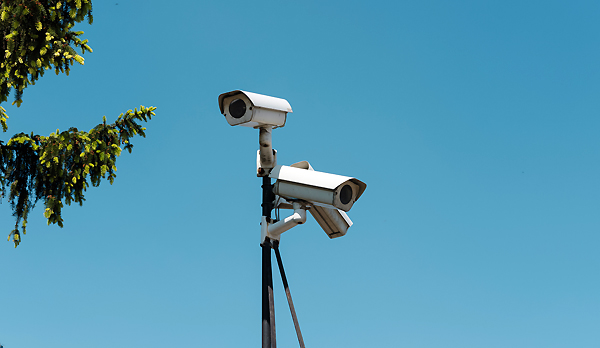The cost of CCTV systems has dropped significantly over the past ten years, making camera systems for homes and small businesses a practical security upgrade for the majority of people. According to recent estimates, up to 5% of homes now utilise CCTV, whether it be a basic system with a single camera that records visitors at the door, or a more sophisticated system that can watch and record everything that happens on the property. Naturally, business ownership of CCTV is much greater.
You can purchase systems from specialised installers and alarm companies (check for SSAIB and NSI accreditation), or you can install your own system using the wide selection of cameras, cable, and recording equipment that is available both online and through main street electronics merchants.
Domestic CCTV
If your camera captures even a small portion of any space outside the perimeter of your property, including neighbouring gardens or the street, the CCTV deployed will be excluded from the Data Protection Act (DPA). Although it does not imply that you are “breaching the DPA,” if your cameras are taking pictures outside the property lines, you are still bound by it.
The easiest way to avoid being subject to the DPA is to change the camera’s angle of view so that it cannot take pictures outside of your boundary. You could also want to think about changing or enhancing the security procedures around the perimeter or enhancing the protection of the structures.
If you are unable to rely on the “domestic uses exemption,” the Data Protection Act imposes a variety of obligations for you to follow, including informing the ICO that you are a data controller. The ICO is aware that people will need some time to get used to these legal changes. Following this ruling, they do not intend to pursue legal action except potentially in rare circumstances against anybody who fails to register the usage of residential CCTV cameras.
More information from the ICO and domestic CCTV can be found on the ICO website.
Business CCTV
Any potential employees using a business CCTV system should have received training on how to operate it and adhere to the CCTV Code of Practice. Businesses will need to be able to respond to police demands for image viewing, stored pictures and offer easily usable copies.
There is no minimum or maximum retention duration that applies to business CCTV systems or footage that is specified by the Data Protection Act. Retention should instead consider the organisations own reasons for capturing photographs and video.
Footage shouldn’t be kept any longer than is strictly necessary and only used to fulfil the goals for which they were originally recorded. When a police force is investigating any potential crime in the area, you may need to keep photographs on file for a longer amount of time to allow them a chance to inspect them as part of the ongoing investigation.
According to several police departments, the standard retention period for most CCTV recordings is still 31 days. However, as the events recorded are probably less serious in nature or are “one-off” incidences, it may not necessarily be required for the owners of smaller businesses to maintain all data for 31 days. In these circumstances, a minimum retention period of 14 days might be appropriate because it gives the authorities enough time to reach the scene and retrieve the video in the event of an incident, while still adhering to the Information Commissioner’s recommendation that data not be kept for longer than necessary.
CCTV Limitations
Although more and more individuals are installing CCTV due to the falling costs, it is probably too soon to anticipate any house insurance reductions for having cameras. To comply with the requirements of insurance, some business owners may have been advised to install a system.
Unfortunately, if photos are not being collected from the exact location of a crime, even the greatest cameras and systems risk missing important evidence. They are still a wise investment for peace of mind, and if you carefully organise the installation, you will be able to acquire relevant footage in the event of an unfortunate event.
Benefits
Having a camera installer on your home or business premises gives an opportunity to capture a complete head and shoulders or whole body shot of the perpetrator. Many criminals will knock on a front door before trying to break in to make sure no one is home. Similarly, if you have a side entrance to your backyard and this is the route that a burglar is likely to use, a camera positioned at the entrance and facing the street may well capture the footage to aid in prosecution.
For those of you running small businesses, such as shops, a camera behind the till looking towards the public side of the counter is going to capture the image of the robber. There is, of course a strong possibility that the robber will cover their face, but even then, important data can still be recorded (tattoos, clothing detail, height etc) so long as you are using a decent quality camera.
CCTV should not be used as an alternative to a high standard of physical security for your home or business, this can include target hardening techniques such as door security. CCTV will deter some criminals from committing crime in and around your property, but it is the physical security and your day-to-day security arrangements that will ultimately prevent most crimes from taking place.

